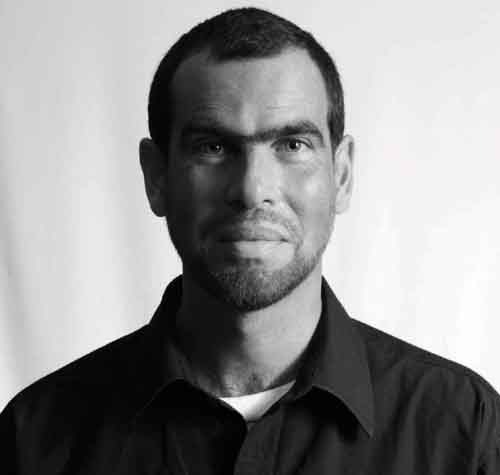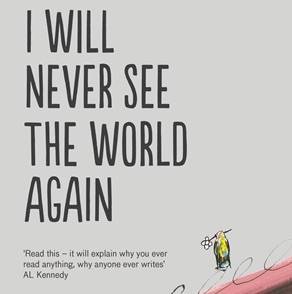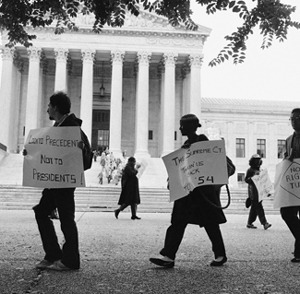
This article is a preview from the Autumn 2016 edition of New Humanist. You can find out more and subscribe here.
Robin Yassin-Kassab is a British Syrian writer based in Scotland. He is the author of the novel “The Road from Damascus” (Penguin). His latest book, “Burning Country: Syrians in Revolution and War” (Pluto Press), written with Leila al-Shami, explores the complicated reality of everyday life in Syria and the failures of the international community.
Why did you write this book?
We felt the situation in Syria was being very badly misrepresented. The revolutionaries weren’t being heard from. People were more aware of the geopolitics of the roles of states, though they often misinterpreted them, and heard about jihadists. But they weren’t aware of the people at the heart of the story – actual democrats – who started it all.
How are the geopolitics misrepresented?
So many people seem to think Syria is a rerun of Iraq, even though there was no revolution in Iraq, no invasion and occupation in Syria. The left in particular, people who one might have thought would be the first to sympathise with the revolutionary movement in the Middle East, have completely misrepresented it. They’ve ignored the facts to stick to a narrative they feel comfortable with.
What is that narrative?
For those kinds of leftists or so-called anti-imperialists, it’s the story that this is a problem of Western imperialism attacking a resistance regime. Assad was not being attacked from outside and he still isn’t being attacked from outside. People inside tried to get rid of him – they’re like people anywhere else in the world responding to their immediate context. The Stop the War coalition mobilised again and again to stop America and Britain attacking the Syrian regime. America and Britain are in fact collaborating with the people intervening to keep this regime afloat.
Do these failures apply to both left and right?
Left and right have terrible assumptions. So many people on the left seem to have given up expecting change to come from below, and instead have a narrative of baddie states (America, Britain, France and Israel) and goodie states, those that claim to oppose the first: Venezuela, Cuba, Iran, even Russia. This is simply absurd. A serious leftist analysis would see that all states are bastards and have imperial tendencies when they become strong enough. On the right, too, you have simple binary narratives. It’s secularism versus Islamism, the Sunnis versus the Shias, and these people aren’t ready for democracy and never will be so you must indirectly support the strongman repressing them.
Should Britain and America have intervened?
I think it definitely would have been better if they had bombed Assad’s airfields in 2013. If they’d done that they wouldn’t have been bombing ISIS today. Obama had said that chemical weapons would be a red line. Then in 2013 Assad killed 1,500 people in five hours with with sarin gas, and the red line disappeared. A lot of Syrians took that as evidence the West is never going to help, so we must turn to the Gulf and also work much closer with Al Qaeda-type groups. It’s a terrible mistake but I understand it absolutely. If I was on the ground in Syria I might agree that was the right thing to do. These people are good at fighting, they’re defending them from the regime. No one else is helping.
The conflict is now framed as jihadism versus the regime. Is that a triumph of Assad’s narrative?
He has helped to create the opposition he wants. In 2011 he rounded up tens of thousands of peaceful, non-sectarian protest organisers and activists, and those people disappeared or were killed. At the same time he released 1,500 prisoners from his jails, Salafist jihadists who had been fighting in Iraq. His scorched-earth policy created the vacuum into which foreign jihadists could come. The fact that Syria is a society divided by sect and ethnicity as well as class obviously helped him.
Your book examines the emergence of popular democracy in Syria.
That’s remarkable. Omar Aziz, an anarchist, thought that as well as protesting, people had to build alternatives to the regime. He helped to found three local councils in suburbs of Damascus before he was arrested and killed in prison. After he died in 2012, they sprouted up all over the place, mainly by necessity because the regime was collapsing and withdrawing its services. It’s patchy: there have been good and awful experiences but in general it’s been really impressive. At one point there were up to 700 councils. Now it’s down to about 400, mainly because so much land has been lost recently either to ISIS or the Assad regime.
Are they democratic?
In areas where people can they’ve been having democratic elections: 45 per cent have been elected in ways we’d recognise, where everyone in the community has a vote. Fifty-five per cent have been chosen by popular consensus. It’s not democracy as we would recognise it but they’re trying: it’s just that the physical conditions don’t allow it. They’re not asking for American planes and tanks to bring democracy. They’re doing it themselves in the most difficult of circumstances. In the middle of all of that chaos, Arabs are practising democracy, and we don’t even talk about it.
What do you see happening next in Syria?
It looks terribly depressing. It seems to be that Assad’s going to stay and that it may be over for the armed rebellion. This doesn’t mean peace is going to be established in Syria. It means the fighting will continue at a low level, maybe for decades. It’ll be cursed by terrorism. Assad has managed to win. He’s committed a genocide and sold the sovereignty of his country directly to Russia and Iran.
What are the implications for terrorism?
Territorially ISIS is shrinking, and as it shrinks territorially it loses some of its raison d’être and support. But it and Jabhat al Nusra [the Al Qaeda affiliate] will continue. Its narrative is being served perfectly well. They’re saying: “We do whatever it takes to defend Sunni Muslims.”
What does it mean for the rest of the world?
It’s a disaster. If Assad stays in power the majority of refugees will never return. That profoundly destabilises Jordan and Lebanon, it changes politics in Turkey, it means the migration issue to Europe – already part of the reason the EU seems to be breaking up – is not going to end. The rise of right-wing anti-immigrant politics is going to intensify. It’s very scary. The atmosphere is already much more poisoned than it was a short time ago and it’s going to get worse.

